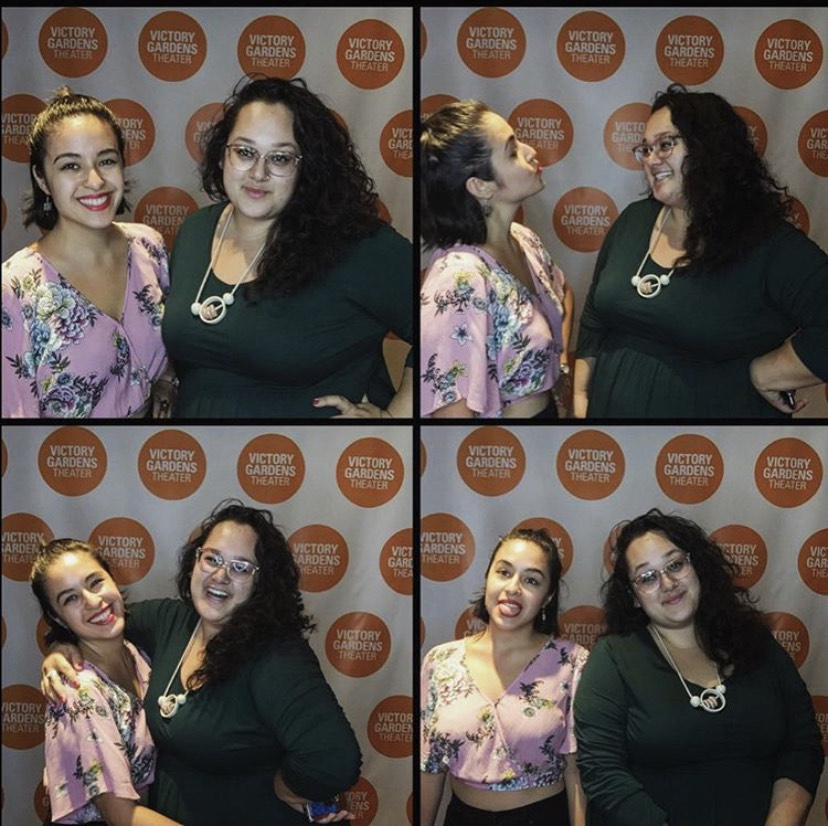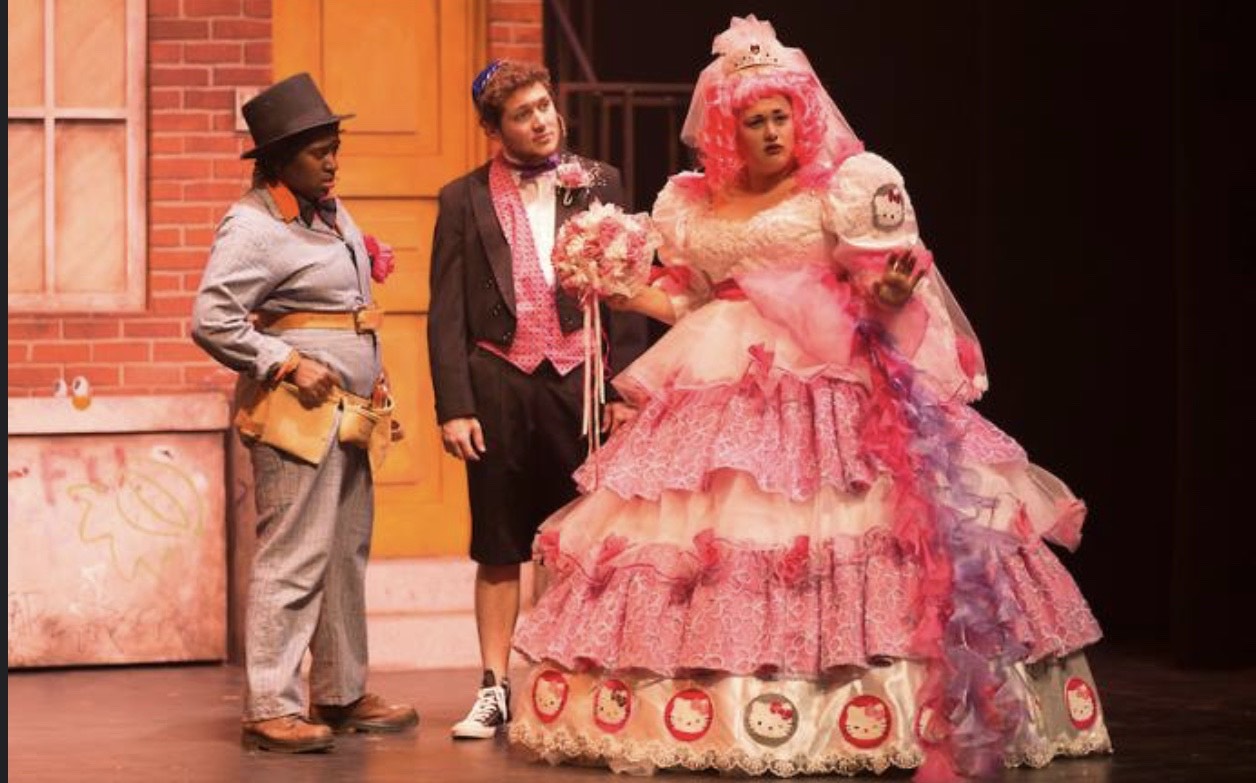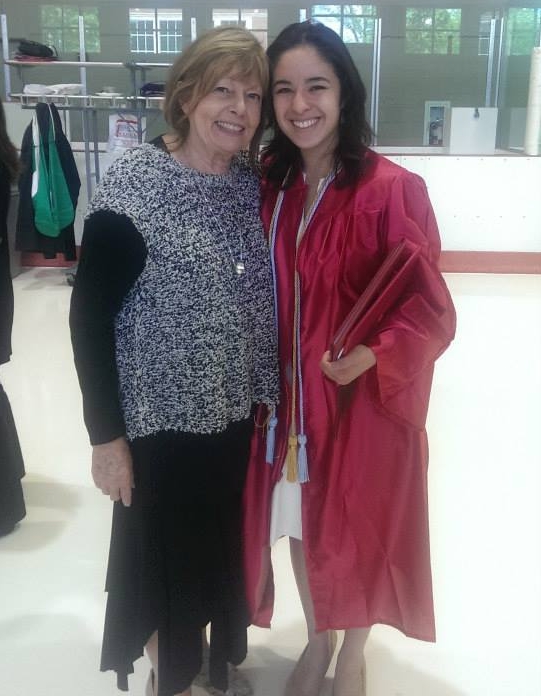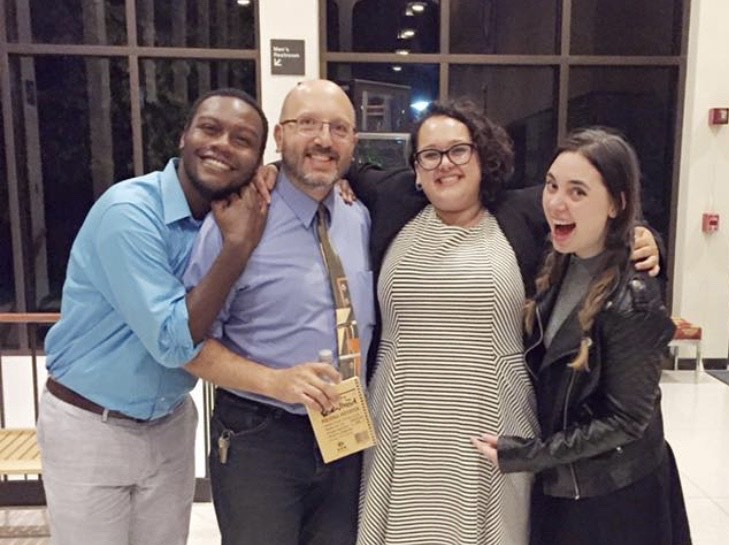

Theater alumnae find power in storytelling behind the curtain
They're pushing to create equity in a male-dominated industry
By Shavon Anderson, university communications and marketing
Cara Hinh (Miami ’16) knew something special was happening. She was living in Baltimore as a fellow with Baltimore Center Stage when an opportunity came to spend two months in New York City, observing on a new-to-Broadway musical.
"Hadestown" was gearing up for its April 2019 debut after years of international, off-Broadway success. Hinh contributed assistant work under the show’s stage director.
“It was such a transformative experience,” Hinh said. “I remind myself, ’You did notes for a show on Broadway. You did that.’”
Months later, “Hadestown,” won eight Tony Awards, and Rachel Chavkin, Hinh’s former boss, became only the 10th woman in history to win best directing. The gravity of Hinh’s involvement set in after hearing Chavkin’s acceptance speech, which highlighted the lack of gender and racial equity and called it a failure of imagination.
“When she gave that speech, everything she said was real,” Hinh said. “That’s how she thinks and functions. She means it.”
There’s great irony in theater, an industry touted for its progressive shows but slow to make progress within its own ranks. Hinh sees calls for inclusivity as companies provide limited opportunities for diverse artists. It’s a small pond for female directors, and an even smaller one for Hinh who describes herself as a “fat, queer, mixed-race womxn.”
But she’s looking ahead, prepared to break barriers on her own. Hinh, along with fellow friend and Miami University alumna Christina Casano (Miami ’14) want to disrupt the system. Both recently secured prestigious appointments at national companies – Hinh in Louisville and Casano in Chicago – and reflected on their past, their time at Miami and the weight of responsibility they feel.
Intersecting art and identity
If you know anything about theater at Miami, you know the name Jackson. Paul Jackson Jr. – former department chair and director of graduate studies – passed in 2018 but deeply impacted Hinh and other students who struggled to navigate their own identities.

Cara Hinh (pictured right) as Christmas Eve in a 2015 Miami University production of "Avenue Q".
“He, as a loud and proud gay black man, taught me and so many others to be unapologetically themselves,” Hinh said.
Jackson’s teaching combined race, class, gender and sexuality, and he spoke frankly about colonialist systems within theater by showing students how to succeed against them. He became one of Hinh’s closest mentors, and she fondly remembers his unbridled exclamations of joy and sorrow never held back on set.
In addition to Jackson, Hinh connected with Casano who was two years ahead. They bonded over cultural similarities.
“As far as I know, we were the only two half-Asians in the department,” Casano said. “Being a woman is difficult, being a person of color is difficult, and being *hapa is even harder when it feels like you aren't fully one thing or the other.”
Casano, a Toledo native and former Bridges Scholar, worked in the costume shop and bounced between roles onstage and behind the scenes before finding a passion in directing.

Rosalyn Benson, former assistant dean in the College of Creative Arts, with Christina Casano at Casano's graduation.
Junior year, she served as assistant director on “Angels In America, Part 1: Millennium Approaches” under Rosalyn Benson, former assistant dean in the College of Creative Arts. Benson became a guiding light and support system.
“Rosalyn means so much to me,” Casano said. “She had a directing style different from others that I’d been in the room with over my first two years of college. I felt welcome and integral to the process.”
In 2014, Casano graduated and settled in Chicago where she interned at a now-defunct, nationally-recognized theater company before taking a job as a medical receptionist to pay bills. Hinh later moved to Cincinnati and lived with “far too many” artists crammed into a single house in Mt. Auburn. She took a part-time job at Cincinnati Playhouse in the Park while logging hours at Target.
“Who am I as an artist?”
It was 2018, two weeks before Christmas on a Tuesday afternoon. Casano finished paperwork at her day job when she learned her position was eliminated.
“It was devastating,” she said. “I had a steady paycheck, I had health insurance, I had vacation days.”
In reality, it was the push she needed. The hours were grueling, and aside from working 40 hours per week, she was still booking theater gigs to gain experience as a director: first as an assistant stage manager and later as a stage manager with The Plagiarists, the company she’s still with. After landing directing spots on a few short play festivals, things seemed to be coming together.
But without job stability, she had to make hard choices about her career and decide whether this was a chance to pursue directing full time. Coincidentally, Casano had recently reconnected with Hinh during a conference for Asian American artists in Chicago. The two shared experiences and advice.

Hinh and Casano at The Consortium of Asian American Theaters & Artists conference in Chicago.
“I felt for the first time in a while that there was another artist who understood what I struggled with in terms of identity, of being a woman of color in theatre,” Casano said.
Hinh, like Casano, also wanted to direct fill time after working with Chavkin in New York. Soon after their chat, both alumnae found opportunity. Hinh headed to the Actors Theatre of Louisville for a directing apprenticeship, assisting on a handful of productions for the company’s mainstage season and directing smaller projects within the Professional Training Company.
Casano accepted an assistant directing position with Chicago’s Victory Gardens Theater through its Directors Inclusion Initiative. The initiative provides a learning platform for developing directors who identify as people of color, disabled, women and LGBTQ. It requires daily rehearsals – six days a week for a full month – on a mainstage show.
“It never would have been feasible, in my mind, if I were still slogging away as a receptionist at a doctor's office,” Casano said.
This season, she’ll direct two short plays with an educational touring company and direct the world premiere of a play called “Poison” for The Plagiarists.
Taking creative control
Theater has long called for gender and racial equity, but the industry remains overwhelmingly male and overwhelmingly white when it comes to directing and casting.
“We get to pretend for a few hours and tell a story that takes people on a journey,” Casano said. “We build a world in our imaginations, and yet, the imagination can't be stretched to include women, gender nonconforming folx and people of color?”

Cara Hinh (pictured second from right) with Brenton Sullivan (Miami '17), Gion DeFrancesco, associate professor of theatre, and Jenny Henderson (Miami '17) at Hinh's senior show opening.
She says putting creative control into the hands of diverse artists will not only increase the quality of productions, but it will also invite wider audiences to the theater to see themselves represented. Meanwhile, Hinh says true inclusion is about engaging the community and creating spaces where artists can be authentic.
She often looks back to her undergraduate years as her career grows.
“I wouldn’t be who I am without Miami,” she said. “I hope Miami continues to have a tradition of artists who can thrive and exist as who they are and feel supported by other artists and faculty.”
Both alumnae pledge to push for change by creating opportunities through racially conscious casting in their productions, by continuing to mentor and connect with other diverse artists and by continuing to speak out against traditional systems, even if it’s not always easy.
“Some people will always respond to a woman calling for change with ‘Who does she think she is?’" Casano said. “I've learned that people will either get on board or get left behind.”